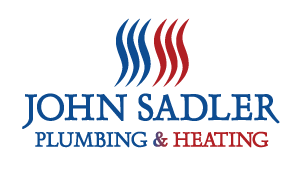It goes without saying that the ability to keep your home warm during colder periods of weather is essential. There are a number of different options to choose from when it comes to achieving this. Two of the most trusted options are heat pumps and furnaces.
Choosing the right heating system can often be a daunting task, with a number of important factors to consider.
This article will explore these important factors and will aim to help you decide which option is best for your home and circumstances.
How Heat Pumps Work
Heat pumps work in much the same way as an air conditioning unit. Warmth from the outside is captured and passed through a heat exchanger. This warmth can be extracted via the air (an air source heat pump) or the ground (a ground source heat pump).
This extracted heat is then absorbed by refrigerant gas which lifts the temperature. The temperature of this warm gas is increased further when it moves through a compressor at high pressure.
This heated gas is then ready to be transferred into water via pipes, allowing for radiators to function, or it is expelled into the home through a ventilation system.
Heat pumps are generally considered to be a highly efficient form of heating and are more suited to slightly milder climates. Perfect for our weather here in Surrey, White Rock, Langley, and Aldergrove.
How Furnaces Work
Furnaces are different from heat pumps in that they are capable of generating heat independently by using a variety of different fuel sources. Electric and natural gas furnaces are two of the most prevalent.
Regardless of which fuel is used, a furnace works by heating a metal exchange component which will then warm the surrounding air contained within. This heated air is then used for the same purposes as with a heat pump.
The fact that it does not need to rely on outdoor elements to create heat will generally make a furnace the better choice in colder climates, particularly gas-powered furnaces. Of course, this option is not always possible in areas where natural gas or propane are not easily available.
Cost Comparison: Installation and Operation
The initial financial outlay will generally be higher when opting for a heat pump, due to their complexity and lower production supply. However, they will recoup much of these costs during their lifetime, as they require much less power to run and are far more efficient. As such, they are often considered to be a far more appealing long-term heating solution.
Check out the current heat pump rebates
A furnace, particularly a gas-powered furnace, has a lower upfront cost. However, the costs of installing gas lines and ventilation systems can be considerable, as can the repairs and general maintenance of a furnace.
Climate Considerations
Heat pumps are far more versatile when it comes to climate considerations, as they are designed to not only heat a home, but cool it as well. Contrastingly, a furnace is only designed for heat.
However, heat pumps became far less effective in extremely cold weather. This is because there is less ambient heat, or heat from the ground, to initially extract. For these types of environments, the furnace is the superior option.
Not all regions have a supply of natural gas or propane readily available. However, if you happen to live in a region or area where this is viable, then a gas furnace might be the better choice in terms of cost and efficiency.
Comfort and Performance
In terms of appearance within the home, a furnace is unobtrusive and can often be installed away from the main house (in basements or attics, for example). In contrast, heat pumps can often be bulky appliances that can require components to be both inside and outside the home. They are also generally noisier than furnaces.
There is little difference in terms of lifespan between the two forms, providing for regular maintenance on the units. Heat pumps will usually require more varied maintenance tasks to keep them operational, such as changing air filters and keeping ice and snow away from the pumps.
Environmental Impact
In terms of environmental friendliness, the heat pump is the clear winner. Heat pumps do not need to burn non-renewable resources, such as natural gas, and their high levels of efficiency mean that they do not require as much electricity to run. They also do not emit harmful emissions.
Gas furnaces can produce air pollutants such as nitrous oxide and carbon dioxide. If you are committed to reducing your carbon footprint, then an electric furnace would be the more conscientious option.
There are often government incentives available to homeowners in return for switching to more environmentally friendly heating appliances.
Conclusion
Ultimately, both heat pumps and furnaces are highly effective at keeping a home warm. Whichever option you choose depends on your individual circumstances and priorities. If you need something with high efficiency and a low carbon footprint, then a heat pump is the obvious choice.
If you need something with a bit more gusto in the cold winter months that will take up less space in your home, then a furnace might be the way to go.
Whatever the choice, it is vital that your appliances are professionally installed by a trained HVAC technician. At John Sadler, we specialize in delivering quality heat pump & furnace installations.
Call John Sadler today at (604) 531-4355, or email us at service@johnsadler.ca, for a free consultation or job estimate.



